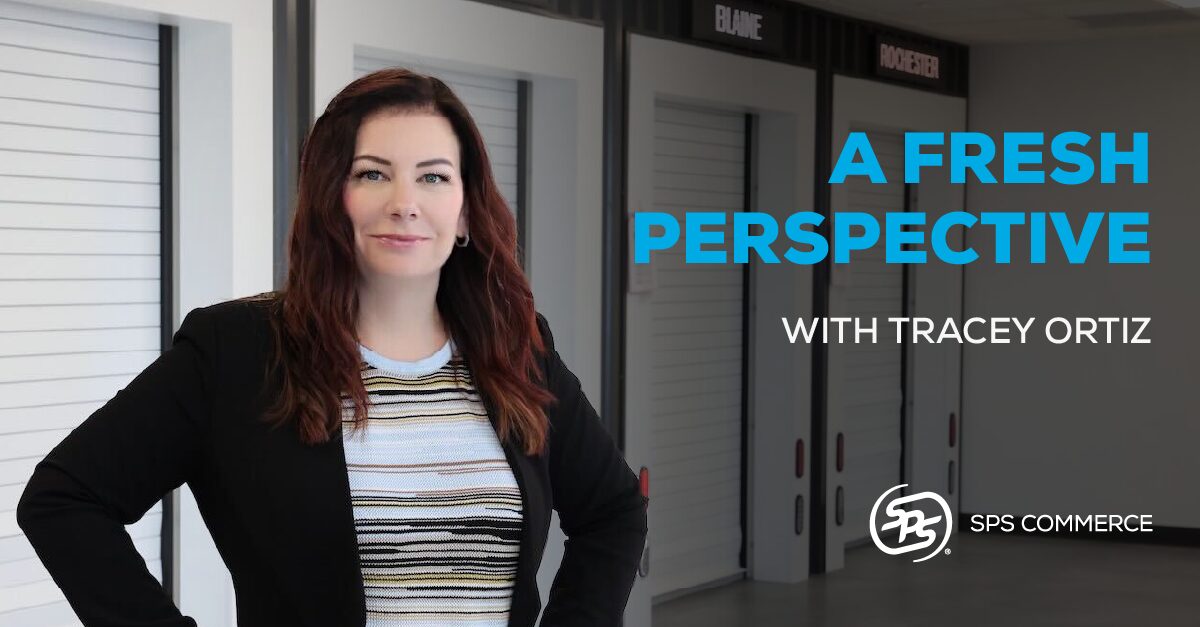Navigating the evolving landscape of global logistics
The world of logistics never stands still. We sat down with Tracey Ortiz, Director of Product Management, to get her take on where things are headed. With over 20 years of experience in supply chain management and a strategic approach to process improvement, Tracey brings valuable insights into optimizing operations and driving business growth. She shared her perspective on how 3PLs are tackling today’s hurdles and gearing up for what’s next.
What are the most significant challenges currently affecting the global logistics industry?
The global logistics industry faces several significant challenges. These issues affect multiple aspects of logistics operations and include:
- Unpredictable delivery schedules due to natural disasters and unforeseen shipping delays.
- Industry-wide strain from labor shortages, especially in transportation and warehousing, compounded by an aging workforce and difficulty attracting young talent.
- Supply-demand imbalances causing bottlenecks and higher freight rates, with insufficient transportation capacity to meet elevated global trade levels.
- Complex and costly integration of new technologies, despite their necessity for maintaining competitiveness and efficiency.
- Managing inventory while facing unpredictable demand and supply chain disruptions.
- Financial pressure from the rising costs of raw materials, energy and transportation. High borrowing rates exacerbate this pressure, forcing companies to absorb costs or pass them to consumers.
How are customer expectations for 3PL services evolving?
Customers are increasingly looking for 3PLs to provide more value through automation and technology. There’s a growing emphasis on efficiency, productivity and accuracy. Research shows that 70-80% of warehouses use a warehouse management system (WMS), which demonstrates a commitment to providing a seamless customer experience. Some 3PLs are even combining a WMS with an order management system to offer additional visibility to their customers.
How does EDI fit into the current logistics technology landscape, and how are companies leveraging or moving beyond traditional EDI?
While EDI remains a cornerstone of logistics communication, 3PLs are increasingly integrating EDI with other systems (like their WMS and OMS) to enhance their capabilities. At the same time, 3PLs are exploring options beyond traditional EDI to differentiate themselves and provide more value to customers. API integration is gaining popularity because it allows real-time data exchange with various systems and faster communication.
3PLs need to provide real-time visibility to their customers so they can plan and react quickly. This visibility helps them avoid service failures that can result in loss of revenue through chargebacks. It also reduces the risk of potential contract cancellation.
Advanced analytics is another area where logistics firms are pushing forward. By leveraging analytics, 3PLs can gain deeper insights into their operations, reduce overhead costs, optimize space usage and inventory, and predict demand more accurately.
What advice would you give to 3PLs looking to diversify their services?
My advice might sound simple, and it’s meant to: be empathetic, open-minded and willing to adapt. The majority of 3PLs will hang their hat on a single service. This works well until the script changes, perhaps due to economic impacts or a customer change.
To best diversify, be willing to diversify. Invest in employees who are creative thinkers and enjoy challenges. Also, consider a multi-channel business approach to spread your risk.
Remember, don’t become complacent in your success. Find the balance between fear and confidence. Never tie yourself to any one product category, process or type of expertise.
How does SPS Commerce partner with 3PLs to address the industry’s current challenges and opportunities?
With over 20 years of experience and partnerships with more than 1,000 3PLs, SPS prioritizes building strong relationships to understand the key pain points our 3PL customers face. We take the time to understand their vision for growth and success, including their short-term and long-term plans.
Our expertise in supply chain management allows us to support our customers in addressing their business concerns and ideas. We align with them on what success and growth look like in their business model and partner with them to help achieve those goals.
What excites you most about your new role at SPS?
My deep understanding of 3PLs’ operational challenges and goals provides a strong foundation for this role. I’m excited to leverage my experience in new ways to create value for our 3PL customers.
SPS Commerce’s welcoming, challenging and inclusive culture, which prioritizes employee well-being, has also made a strong impression on me. Looking ahead, I anticipate years of mutual growth and success!
As the logistics landscape continues to evolve, staying aligned with your customers is key to success. Discover how SPS Commerce can help you navigate industry changes by connecting with our team or exploring our solutions.

RELATED POSTS
Solving the 5 critical challenges pre...
3 roadblocks to transportation scorec...
Scaling smarter: Why trucking compani...